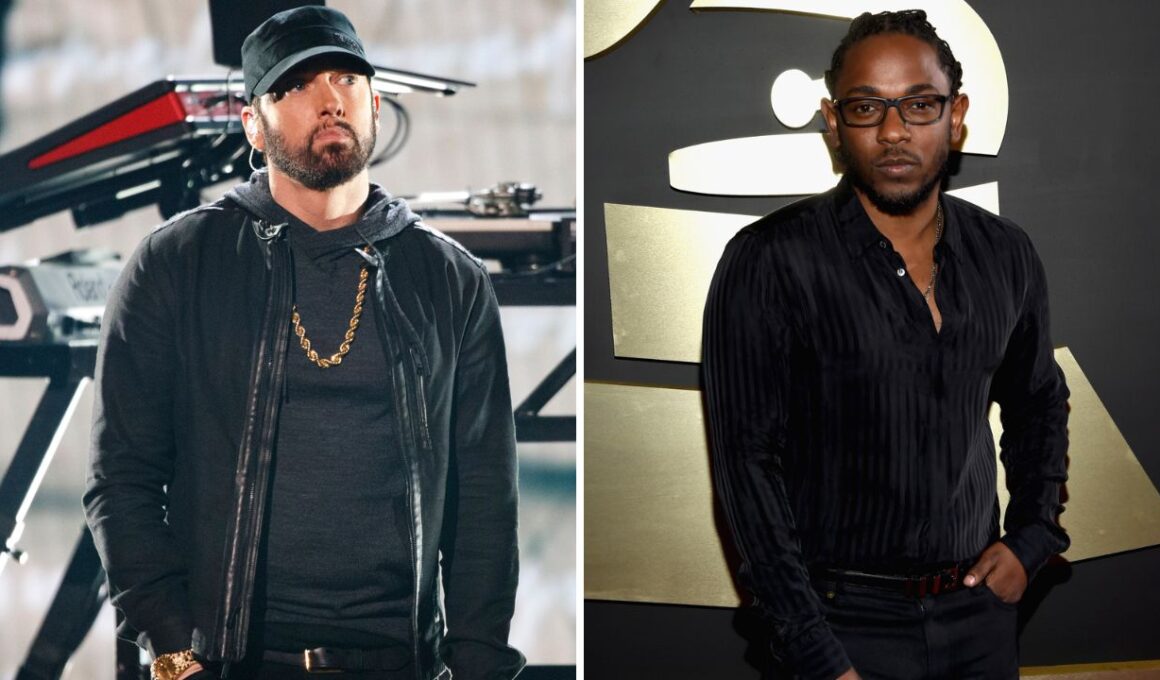Kendrick Lamar’s Harrowing Song ‘We Cry Together’ Has a History Far Deeper Than Eminem’s ‘Kim’

When Kendrick Lamar released “We Cry Together” on his 2022 album Mr. Morale & the Big Steppers, the track instantly became one of the most emotionally intense and controversial moments in his discography. Featuring actress Taylour Paige, the song presents a raw, profanity-laced argument between a couple in a toxic and abusive relationship — its realism, emotional weight, and disturbing intimacy earned comparisons to Eminem’s 2000 track “Kim.”
But for Rhoda Dakar, the British ska singer best known for her work with the Special A.K.A., “We Cry Together” stirred memories of her own brutally confrontational 1982 single “The Boiler.” In a recent conversation with Variety, Dakar offered candid thoughts on Lamar’s song, her own musical legacy, and the evolution of storytelling in music around trauma and abuse.
“The Boiler”: A Harrowing Precedent
Released in 1982 by the Special A.K.A., “The Boiler” is a devastatingly vivid narrative about a woman who is raped by a man she initially trusts. Over seven unsettling minutes of ska-jazz instrumentation that builds in intensity, Dakar uses a spoken-word performance technique — grounded in theatrical emotional memory — to tell the story, culminating in 90 seconds of gut-wrenching, realistic screaming.
Though it reached No. 35 on the UK charts, “The Boiler” was never included on an album and is often omitted from retrospectives, despite its stark impact. Dakar, a former theater student, said the song came from an improvised rehearsal session inspired by a real incident someone had shared with her.
“That’s how I was able to make it real,” Dakar explains. “You use emotional memory… It’s a piece of theatre.”
Rhoda Dakar’s Reaction to “We Cry Together”
Asked for her thoughts on Kendrick Lamar’s “We Cry Together,” Dakar had mixed feelings.
“It’s kind of disappointing, because she caves at the end, doesn’t she?” Dakar said, referring to Taylour Paige’s character choosing sex over escape in the song’s climax. “It’s like, ‘Oh no, she’s gonna go back to him!’… She is essentially colluding in the abuse.”
While acknowledging the emotional power of the track, Dakar felt frustrated by the fact that Lamar — the song’s sole credited lyricist — wrote both his and Paige’s parts. “People will probably shoot me down in flames for saying this,” she said, “but I’d say to Kendrick Lamar: If you want to know what a woman thinks about domestic violence, don’t write the words for her!”
The Cultural Disconnect
Though she appreciates early rap artists like Public Enemy and N.W.A., Dakar admitted that modern American hip-hop doesn’t always resonate with her. “If you’re Black in the U.K., you can’t relate to the level of racism [Kendrick] will have come up against. It’s more nuanced here.”
Still, her admiration for the emotional honesty behind “We Cry Together” is evident, even as she critiques its conclusion. She even notes that if she were to write a modern-day version of “The Boiler,” it might resemble Lamar’s song more than the original — not about a naive young woman on a date, but a more mature, complex portrayal of domestic abuse and entrapment.
Why She Doesn’t Perform “The Boiler” Anymore
Fans often ask Dakar why she doesn’t perform “The Boiler” live today. Her answer is straightforward: “Because the character was a young girl in her 20s, and I don’t know that I could pull that off now… A woman of my age wouldn’t get sucked into that — at least I’d like to think she wouldn’t.”
She adds that any retelling would need to reflect a different kind of story — perhaps one more akin to “We Cry Together,” which deals with the ongoing cycle of toxicity rather than a singular traumatic event.
A Full-Circle Conversation
“The Boiler” was ahead of its time in tackling sexual violence through the lens of music and performance. “We Cry Together” — although flawed in Dakar’s view — brings those conversations into a modern light. The two songs, decades apart, remind us that music can force listeners to confront uncomfortable truths.
While Dakar downplays the legacy of her own work, saying, “I wasn’t trying to do anything,” the cultural and emotional weight of “The Boiler” is undeniable — just as Lamar’s emotionally charged track continues to spark discussion.





